Are you dealing with slow weight loss after gastric bypass surgery? Or maybe your weight loss has come to a complete halt. Don’t give up on your hard efforts! Slow weight loss, or a weight-loss plateau, is normal after gastric bypass surgery. Let’s discuss some common causes and tips to avoid a weight-loss plateau.
What is a Weight-Loss Plateau?
A weight-loss plateau is when rapid weight loss has slowed or come to a complete stop. You will notice when you have lost little to no weight as compared to the weeks prior. It usually occurs around the three-week mark after gastric bypass surgery. And you may have heard it before referred to as a “three-week stall.” While most weight-loss plateaus occur three weeks after surgery, they can happen anytime during your weight loss journey.
How long does a weight-loss plateau last? It depends on a few factors and it’s different for everyone. So it’s important to be mindful of how your body is feeling and review your daily routine.
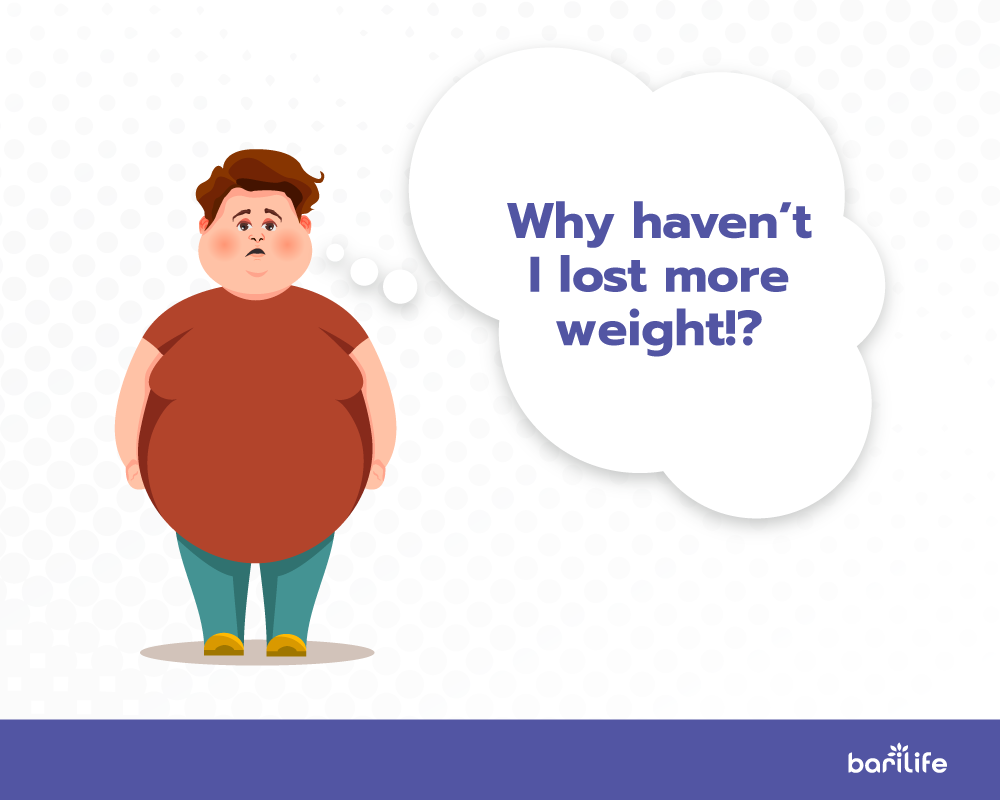
Common Causes of Slow Weight Loss
While slow weight loss is normal, it’s important to understand the potential causes so that you can correct them. Let’s discuss some common causes of slow weight loss after gastric bypass surgery.
Changes To Your Digestive Tract and Metabolism
After your surgeon removes a small portion of your stomach, your body has to adjust to some major digestive tract changes. As it adjusts, it also works to preserve vital organs and maintain your immune system to fight off infections.
Besides altering your digestive tract, let’s review some additional changes that are happening to your body.
Reduced-Calorie Intake: You are consuming fewer calories than you were before surgery due to a reduced stomach size. As your body adapts to the reduced-calorie intake, it will start burning fat for energy instead of carbohydrates.
Reduced Nutrient Absorption: As gastric bypass surgery alters your digestive tract, it causes a decrease in nutrient absorption. This is because most of your nutrient absorption occurs in your digestive tract.
Your Body Enters Ketosis: As your body starts to burn fat instead of carbohydrates, it produces ketones. When your body produces enough ketones, it enters a state called ketosis. During ketosis, your body makes extra urine and you will notice increased urination and thirst. So, make sure you are drinking plenty of water so you don’t become dehydrated!
Changes to Gut Bacteria and Hormones: As your body is healing, your gut bacteria and hormones are going through changes. So you may notice that you are not hungry or feel fuller faster.
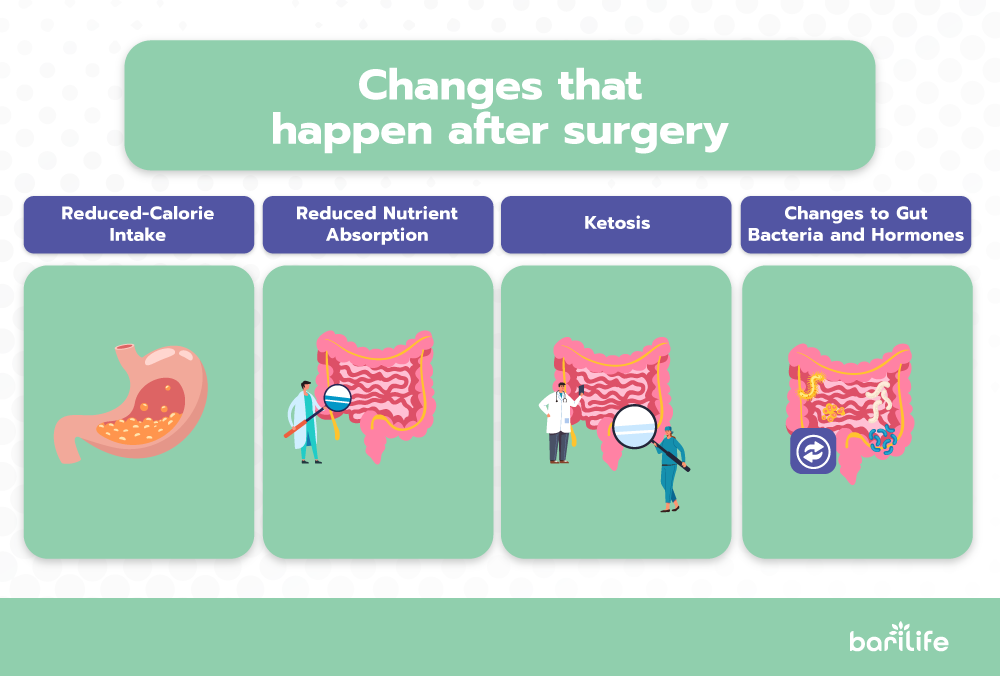
Not Following Your Diet
Another common cause of slow weight loss after gastric bypass surgery is not following your diet. Many people who have a weight-loss plateau are not eating enough protein or drinking enough water.
After gastric bypass surgery, you should be eating at least 65 grams of protein day. Some foods high in lean protein are eggs, fish, tofu, chicken, and yogurt. If you have a hard time coming up with meal ideas, try one of these bariatric friendly chicken recipes. Also, eat smaller, more frequent meals and avoid foods high in sugar and fat. Always follow your prescribed diet guidelines after surgery to prevent stretching your stomach or any other complications. Only advance to the next diet stage when your doctor allows it.
Also, take your vitamins and supplements as directed by your doctor. Vitamin and nutrient deficiencies can contribute to slow weight loss or weight regain. Important supplements include calcium, vitamin D, and vitamin B12.
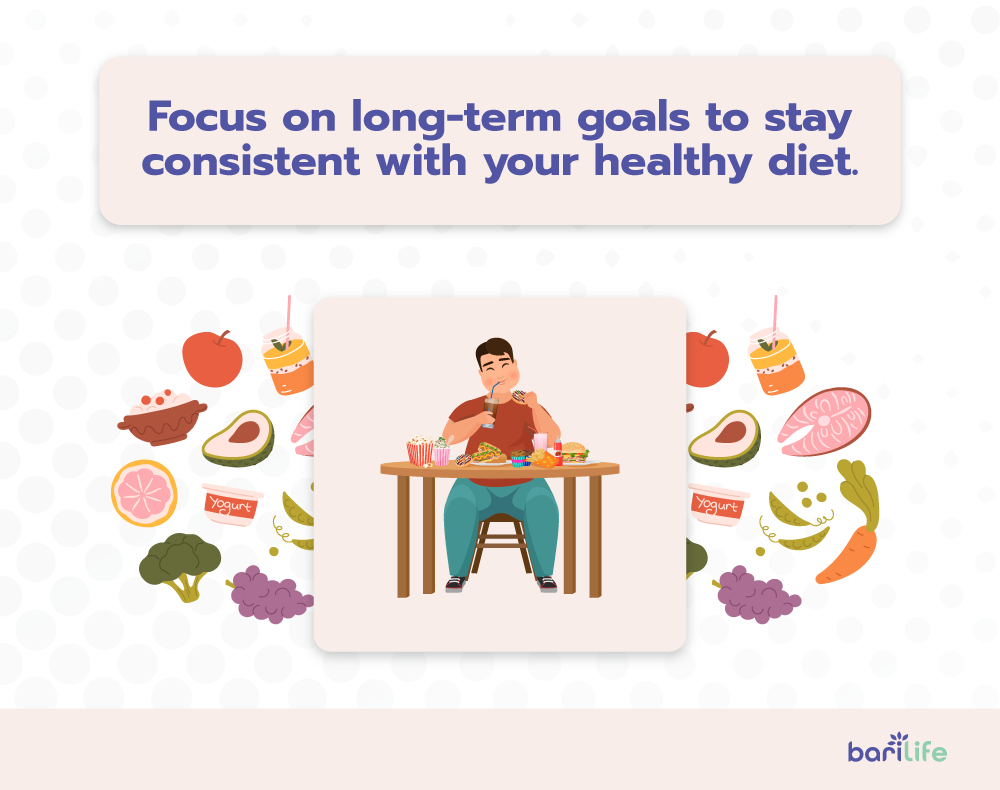
Not Following an Exercise Routine
Exercise can be difficult after your surgery due to a variety of reasons. Include exercise in your daily routine, as it’s a crucial part of weight loss. The Centers for Disease Control (CDC) recommends 150 minutes of physical exercise a week. Balance your exercise regimen between cardiovascular and strength or muscle-building exercises. Low impact exercises are another great way to burn calories and aid with weight loss. Depending Too much of one exercise can lead to a slow weight loss after gastric bypass surgery.
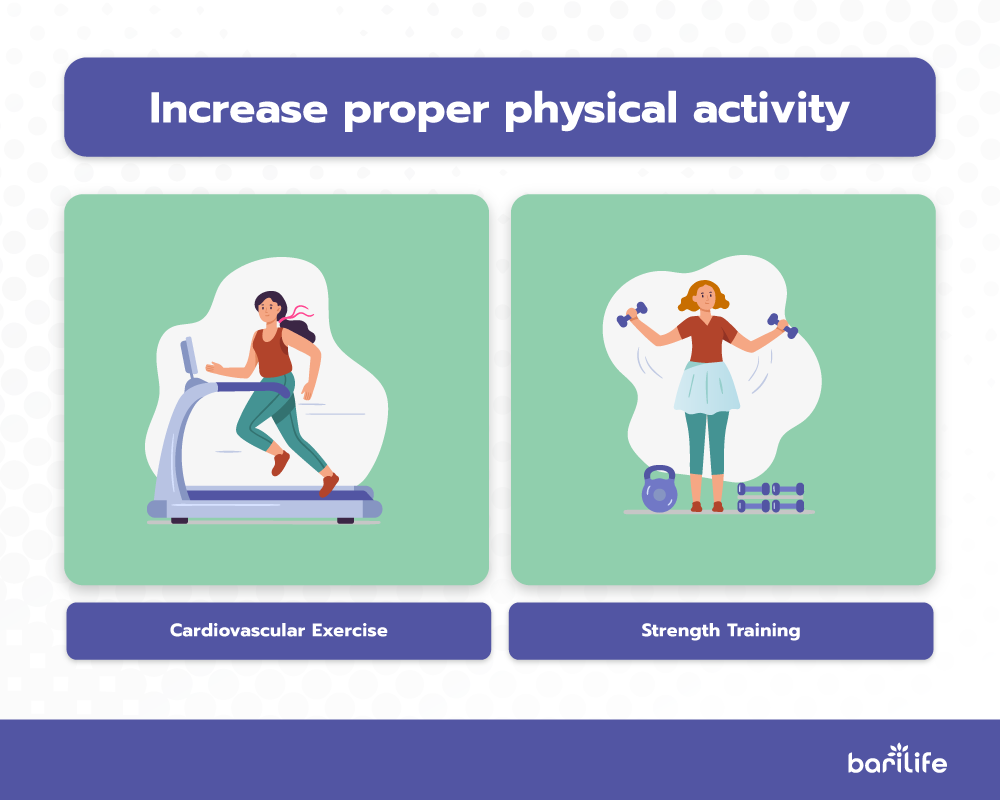
Tips to Avoid Slow Weight Loss
Now that we have reviewed the common causes of slow weight loss, let’s discuss tips to avoid a weight-loss plateau.
1. Keep a Food Diary
Research shows that diet and exercise adherence declines as weight loss slows. If this happens to you, don’t let this discourage you from your weight loss goals, and stick with your diet! Keeping a food diary is a great way to help you track your food intake and stay accountable. If you have slow weight loss after gastric bypass surgery, your doctor may ask you to track your food intake. So already keeping a food diary would be helpful.
Also in your food diary, record your water intake. Keeping track of water consumption will prevent you from becoming dehydrated. Water is also a natural appetite suppressant and can help curb food cravings. So the next time you feel hungry, drink water first. It may help suppress your food craving.
If you’re having difficulty tracking your food take, try a smartphone app. MyFitnessPal is a great app that helps you track food and water intake. You can even record exercise!
2. Exercise!
After your initial recovery, adding exercise to your routine can be difficult. Incorporate both cardio and strength exercises in your routine, as they are equally beneficial. If you don’t know where to start, here are some guidelines for exercising after bariatric surgery.
If you are following your exercise routine and still have slow weight loss after gastric bypass surgery, consider changing your routine. Small exercise changes can target different muscle groups and increase weight loss.
3. Check on Your Mental Health
Research shows that poor mental health contributes to weight-loss plateaus in bariatric patients. Body image, stress, and other factors can influence your mental health. So it’s important to have good mental health and a healthy support system at home.
If you don’t have a support system, consider cognitive behavioral therapy (CBT). CBT helps improve mental health and reduce potential weight regain after bariatric surgery. Companies like Talkspace and Betterhelp offer counseling via telehealth, where you don’t have to leave home.
4. Take Vitamins and Supplements
As stated before, your body is going through metabolism and digestion changes. It’s crucial to take your vitamins and supplements as prescribed by your doctor. If you’re having trouble finding bariatric supplements, Bari Life offers a variety of vitamins and supplements specifically designed for post-bariatric surgery patients.
5. Keep Follow Up Appointment with Your Doctor
It’s key to keep your follow-up appointments with your bariatric surgeon. They can help you track slow weight loss and make necessary lifestyle changes. Sometimes weight-loss medications are a beneficial addition to diet and exercise for gastric bypass surgery patients. Again, this is why keeping a food and exercise diary is beneficial. Your doctor will want to review this before writing a prescription.
Also, follow up with your primary care doctor and any specialists. Many bariatric patients have comorbidities, such as diabetes and hypertension. Comorbidities increase your risk for complications after surgery. So again, it’s important to keep your follow-up appointments to reduce your chances of complications. Your doctor may also want to make changes to your medications.
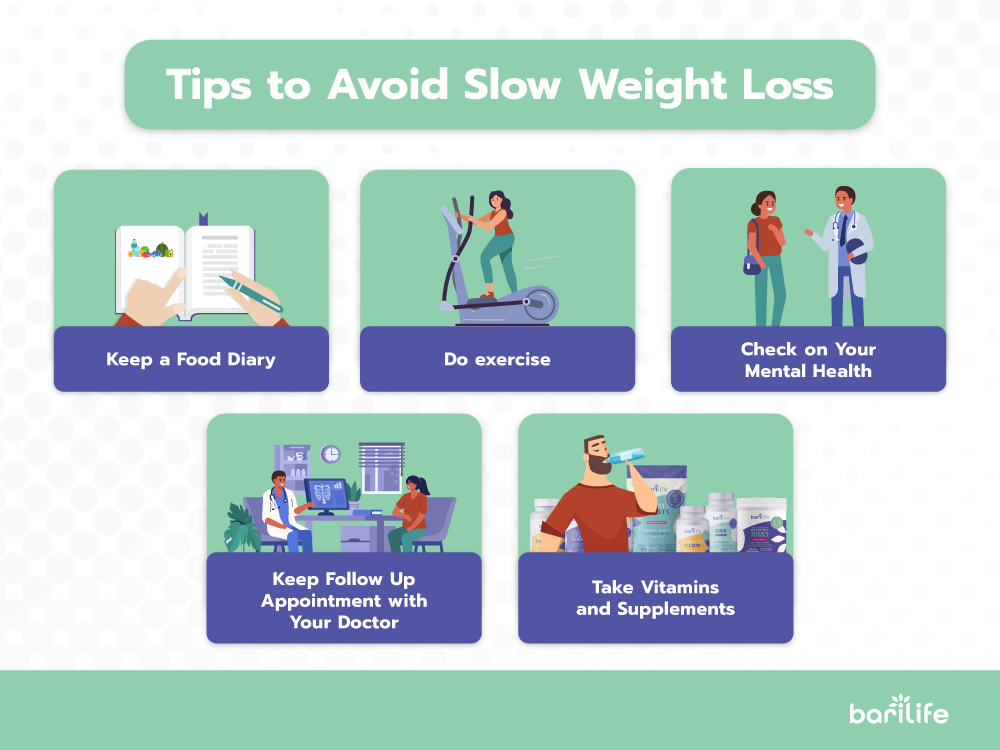
Remember, slow weight loss after gastric bypass surgery is normal. Don’t give up on your weight loss goals if you have a small bump in the road! Everyone’s weight loss journey is different. Use these tips as a guide to avoid a weight-loss plateau and understand your body’s changes.
References:
Bariatric surgery and long-term nutritional issues
https://www.ncbi.nlm.nih.gov/pmc/articles/PMC5700383/
Psychological Aspects of Bariatric Surgery as a Treatment for Obesity
https://www.ncbi.nlm.nih.gov/pmc/articles/PMC5359375/
The Work behind Weight-Loss Surgery: A Qualitative Analysis of Food Intake after the First Two Years Post-Op https://www.ncbi.nlm.nih.gov/pmc/articles/PMC3913016/
Cognitive-behavioral therapy and predictors of weight loss in bariatric surgery patients https://pubmed.ncbi.nlm.nih.gov/28795980/
Pharmacotherapy in Conjunction with a Diet and Exercise Program for the Treatment of Weight Recidivism or Weight Loss Plateau Post-bariatric Surgery: a Retrospective Review https://pubmed.ncbi.nlm.nih.gov/26615406/
Effect of excessive water intake on body weight, body mass index, body fat, and appetite of overweight female participants




What are your tips and tricks to post-bariatric success?